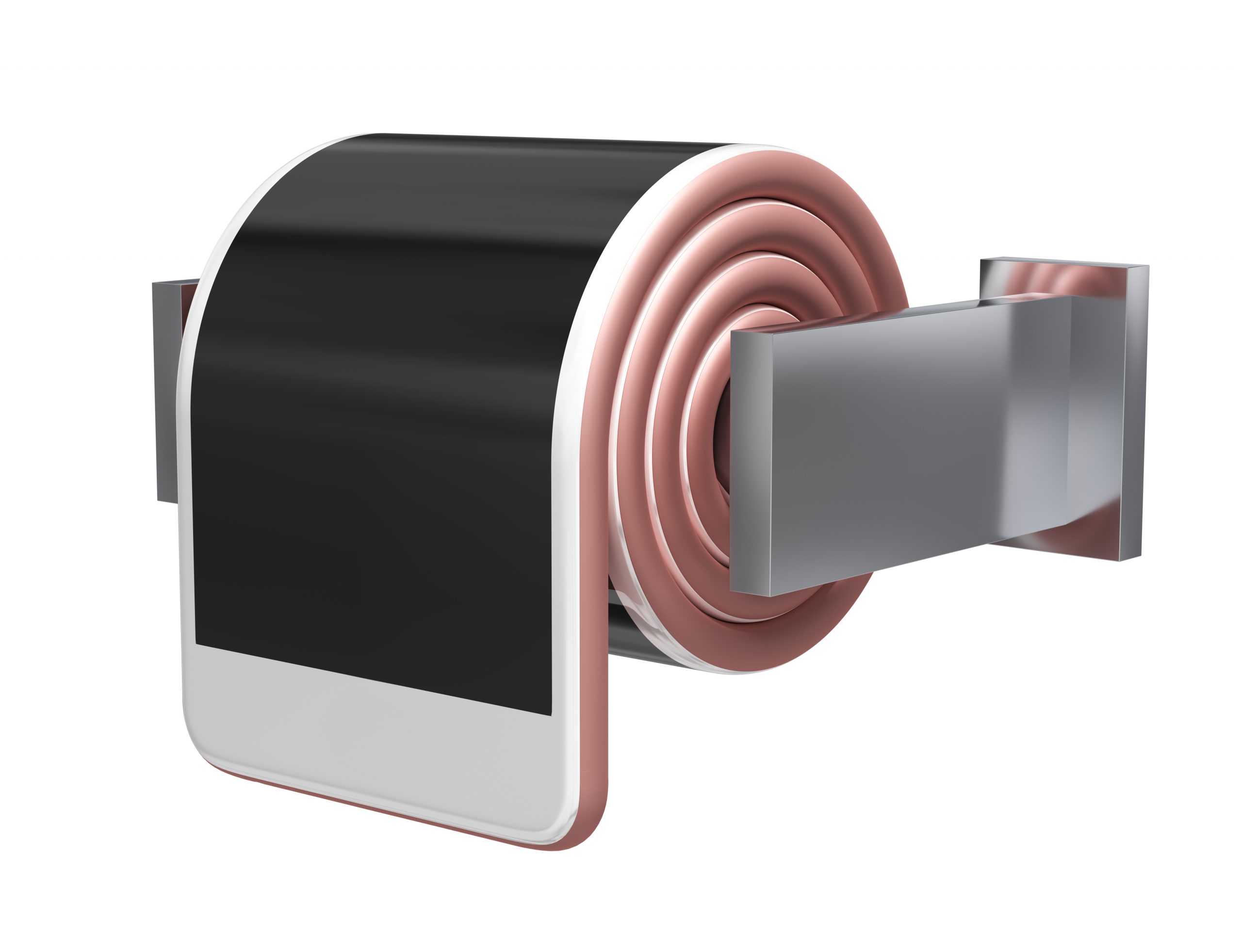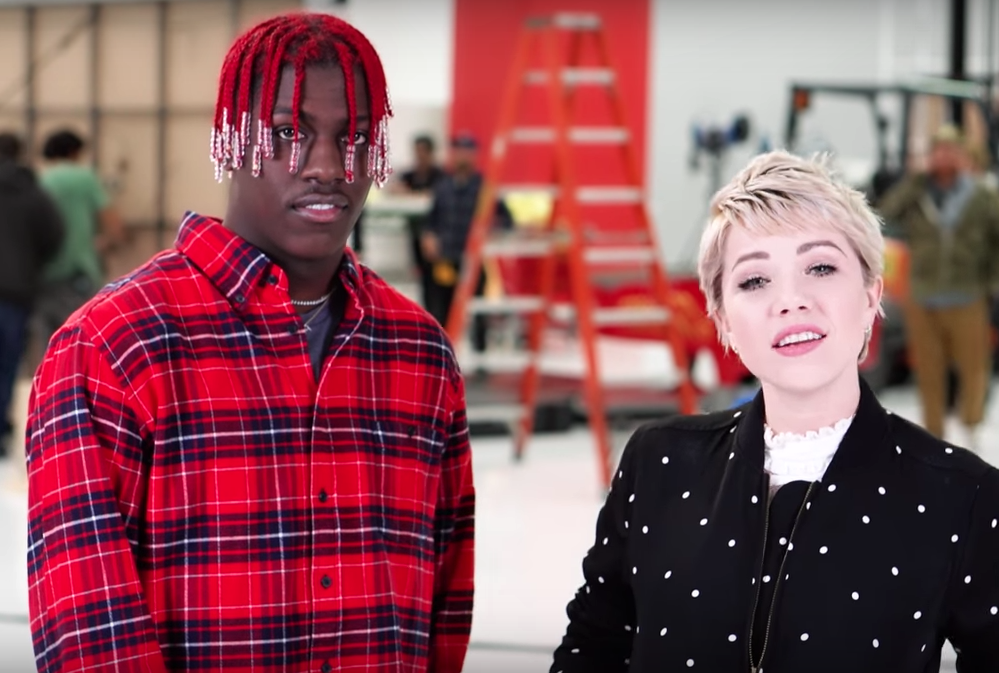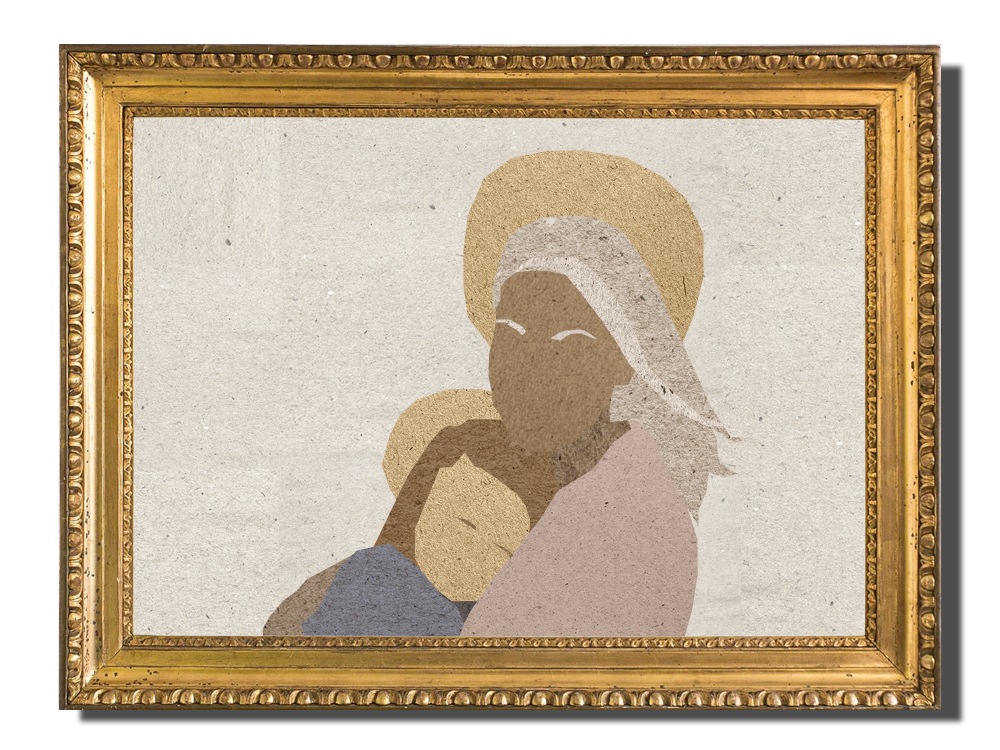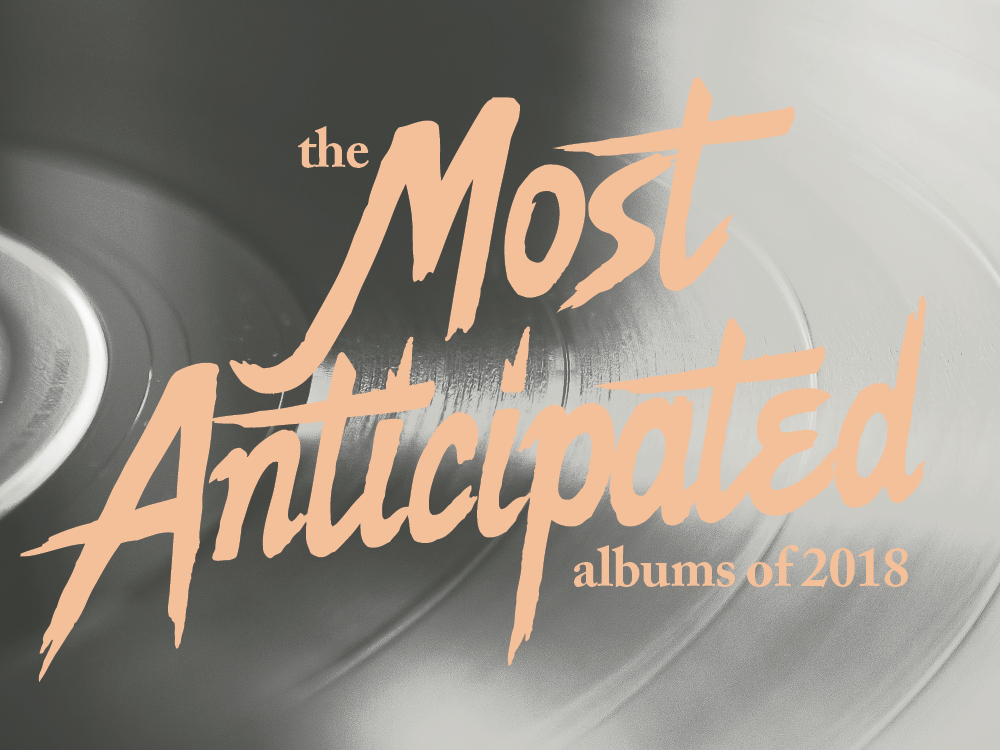Whichever side you’re on in the "art is inherently political" debate, there are certain eras wherein political turmoil overwhelmed artistic output. From the '60s through the present day, there has been music made to protest things like war, civil rights violations, the criminalization of drugs, police brutality, mass shootings, and pretty much every president who has taken office. During some decades this politically charged music hit a trend in particular genres, but it's safe to say that 2017 saw upheaval across the board.
Since the election of Donald Trump there has been a resurgence of political performance art and protest music. The themes that sparked these acts of musical defiance in decades past still have relevance today, and as this new administration has encouraged the left to become more politically literate, or "woke," protest music has infiltrated every possible genre.
During a year where many people felt increasingly voiceless, artists had a lot to say. So, here are just a handful of tracks from 2017 that we can get down to and stand up with. Put them on a mixtape, share them with a friend, or simply sing them loudly in the vicinity of anyone who might somehow still not understand that we have a lot of resisting left to do.
JAY-Z - "The Story Of O.J."
[videoembed size="full_width" alignment="center" orientation="horizontal"][/videoembed]
The second track on Jay-Z’s latest, 4:44, has layers upon layers of social commentary. The black-and-white Jim Crow-style animated video for "The Story Of O.J." is purposely offensive. Jay is depicted as the white glove wearing Jaybo (a play on Little Black Sambo), who spits out watermelon seeds and raps among klansmen. But the song pushes against these stereotypes in tandem with the sample of Nina Simone’s "Four Women." All of the elements, aural and visual, support the claim that no matter how much fame or money an individual (like O.J. Simpson or Jay-Z himself) might acquire, the black community is still not protected from the prejudices in the world at large and there’s a responsibility to provide that protection for each other, as Jay discussed with NYT executive editor Dean Baquet:
BAQUET: You could read "The Story Of O.J." two ways. You could say it's a reminder of people that they're black. I could read that as a negative message or a positive message. The positive message being: You're black and you should be more proud of it. The negative message is: Who are you kidding? You can't escape this by joining a private country club and playing golf.
JAY-Z: Right.
BAQUET: Which message feels like the right [one]?
JAY-Z: They both, they both dual messages at the same time. It's like, be proud of who you are and realize that we're gonna get further together. Don't check out. You can't just turn your back on the place you come from. You come from a community. Your job is to uplift it now.
Kendrick Lamar - "DNA."
[videoembed size="full_width" alignment="center" orientation="horizontal"][/videoembed]
At the very least, "DNA." is a response to Geraldo Rivera's asinine comment that "hip-hop has done more damage to young African Americans than racism" regarding Kendrick Lamar's 2015 BET Awards Performance of "Alright" (a certified protest song itself). Lamar continues his critique of police brutality throughout DAMN., and he honors black lives that the police state disregards on the song "DNA." Lamar does this in part by introducing a new alter ego: Kung Fu Kenny. In a Complex article, author Adisa Banjoko discussed why the Kung Fu culture suits Kendrick’s cause:
People often forget that hip-hop was born out of the ashes of the civil rights movement, and so much of that was tied to a reclamation of black male dignity. These films — Bruce Lee movies in particular, and a lot of the Shaw Brothers films — often dealt with one man going against an organization, or one man going against an unjust state. Because so much of this was done with just the hands, it was also a tool of the poor. You didn't have to be rich to have these skills. You just had to be disciplined and be willing to work, and you could have it.
That was one of the main reasons that the martial arts resonated with African American males who, people conveniently forget, had all of their warrior traditions literally beaten out of them on slave plantations and in sharecropper/Jim Crow America. So these films were supremely inspirational to masses of black males who felt culturally robbed of their warrior spirit, and inspirational on a philosophical perspective, because of the responsibility that having the skills demanded.
Priests - "Pink White House"
[videoembed size="full_width" alignment="center" orientation="horizontal"]
[/videoembed]
Hailing from Washington, D.C., Priests are quite literally at the center of the unending political drama we're in the midst of. Though "Pink White House" came out ahead of their debut LP, Nothing Feels Natural, and the actual 2016 election results, it practically foreshadowed the ridiculous paradox in which we’d soon find ourselves.
"Pink White House" questions the validity of the American Dream, with Katie Alice Greer's chant of “Anything you want/ Anyone you want/ Anywhere you want/ Anyway, anyway" becoming more breathless and crazed with every repetition. Greer addresses American apathy throughout, leading us to question whether fighting for social change really achieves anything. Are we just "a cog in the machine," being fed fantasy by "nostalgia and '90s TV"? Are we doing enough? Of all that has been happening in the past year, what good does it really do to "sign a petition, throw your shoe," or "vote for numbers one or two"? Many of us have done the latter, but the electoral college pulled the plug on that. And really, it blows my mind that no one’s tried to throw their shoe at a politician this year. There’s a good New Year's resolution for you! But you didn’t hear it from me.
Downtown Boys - "A Wall"
[videoembed size="full_width" alignment="center" orientation="horizontal"][/videoembed]
Cost Of Living, the thematic follow up to Providence punk rockers Downtown Boys’ sophomore record Full Communism, earned an Album of The Week nod this year, and for good reason. The lead track, "A Wall," was one of our favorites. It made this list not only for its roaring and liberal use of an R-rated call-and-response, nor for the driving bassline, nor my own fondness for saxophone. It’s on the list because despite the fact that the title clearly alludes to Donald Trump’s proposal to build a wall at the border of Mexico, the lyrics lend themselves to more interpretation. The opening lyric is where the rabbit hole begins, with lead singer Victoria Ruiz asking: "How much is enough? And who makes that call?" How many mass shootings until there's gun reform? How many black men will die before the police state is dismantled? How many more protests will we organize against the Muslim ban? How many bafflingly incoherent tweets will be sent before that rotten tangerine loses his cell phone privileges?
But what's most special about Downtown Boys' third full-length is that in calling out the injustices, they call upon us to figure out how to reconcile with a system that fails us in so many ways. "And when you see him now/ I hope you see yourself."
Hurray For The Riff Raff - "Pa'lante"
[videoembed size="full_width" alignment="center" orientation="horizontal"][/videoembed]
Hurray For The Riff Raff frontwoman Alynda Lee Segarra will sing for the voiceless until they are heard. She criticized folk music for using violence against women and people of color as traditional subject matter in her song, "The Body Electric," from her 2014 album, Small Town Heroes. She dedicated one of her latest tracks, "Rican Beach," to the people of Standing Rock and Peñuelas, Puerto Rico. But the true highlight of HFTRR's newest record, The Navigator, is the penultimate track, "Pa'lante." The word, slang in the Puerto Rican community, translates to "go forward."
The studio version includes a recording of Pedro Pietri's poem "Puerto Rican Obituary." In concert, Segarra usually recites it herself, supporting her meditation on the colonization of her brothers and sisters of color.
Brandi Carlile - "The Joke"
[videoembed size="full_width" alignment="center" orientation="horizontal"][/videoembed]
Folk-country artist Brandi Carlile reissued her 2007 album, The Story, this year as a compilation tribute to benefit War Child. Her sixth LP, By The Way, I Forgive You was announced via the release of her latest single, "The Joke." Though her protest may be more subtle than other tracks on this list, lyrics like, "You're looking tired, but you don’t look scared," speak to those who are still resisting. "There are so many people feeling misrepresented [today]," Carlile explained to NPR. "So many people feeling unloved. Boys feeling marginalized and forced into these kind of awkward shapes of masculinity that they do or don't belong in... so many men and boys are trans or disabled or shy. Little girls who got so excited for the last election, and are dealing with the fallout. The song is just for people that feel underrepresented, unloved or illegal."
Fiona Apple - "Tiny Hands"
[videoembed size="full_width" alignment="center" orientation="horizontal"][/videoembed]
This one is very simple. "Tiny Hands" is a chant created by art-pop singer-songwriter Fiona Apple for the Women's March On Washington, both in response to our disaster of a presiden'’s equally disastrous comments on women and to add further insult to a tiny injury. Considering the number of men who are currently being brought to justice for sexual misconduct, this chant seems pretty reasonable and annoyingly necessary. Keep your teeth in your face, your hands to yourself, and your peen in your pants. All you really had to do in kindergarten was pay attention.
Fever Ray - "This Country"
[videoembed size="full_width" alignment="center" orientation="horizontal"][/videoembed]
Karin Dreijer carried the political calls in her final album with the Knife through to her latest solo record as Fever Ray. "This Country," the album's centerpiece, is one of the many tracks in which Dreijer freely expands upon her personal sexual freedom. Though "This Country" may not be referring to the US in particular, it’s certainly applicable. "Free abortions! And clean water!" Dreijer chants at one point. Abortions are still highly restricted in some states, and last we checked, Flint, MI still doesn’t have clean water. "Destroy nuclear/ Destroy boring," alludes to the default nuclear family structure society at large still considers most acceptable. "This [album] is about freedom, and curiosity," Dreijer said in a recent interview. "Now I think it’s absolutely possible to create a family that isn’t a nuclear one, but I didn’t know that then. I had lived a very feminist way of life before I had kids and I was shocked at how society treats you when you become a mother. You’re basically supposed to cut your arms and legs off and stay in the house."
ANOHNI - "You Are My Enemy"
[videoembed size="full_width" alignment="center" orientation="horizontal"][/videoembed]
Declared Protest Song Of The Week by Shadow Proof, "You Are My Enemy" from ANOHNI’s latest EP, Paradise, begins à capella and grows into a full chorus of chants. The title says enough on its own, but the few lyrics that are sung within the song's brief two-and-a-half minutes are filled with feminist power. “You poured from my body/ On a river of blood.” In a press release, ANOHNI elaborated on the idea that the enemy, of course those currently in power, will meet their maker: women. "Mothers, your sons are trapped in a nightmare; they are not capable of responsibly negotiating the destructive agency that they now wield," she writes.
Mavis Staples - "We Go High"
[videoembed size="full_width" alignment="center" orientation="horizontal"][/videoembed]
Any track on Mavis Staples' If All I Was Was Black could have easily made this list. Mavis Staples could be the list. But if we have to settle for one track, the Michelle Obama-inspired "We Go High" is it. Maybe it's her charming wit or perhaps more realistically the fact that "nothing has changed," but Staples finds a way to speak to her oppressors in her lyrics with the same compassion and exasperation she unleashed when she came to prominence as a leader of the Civil Rights Movement. "Oh, I have a mind/ To bury them whole/ When they go low/ To tell you the truth." Lead the way, Mavis.






